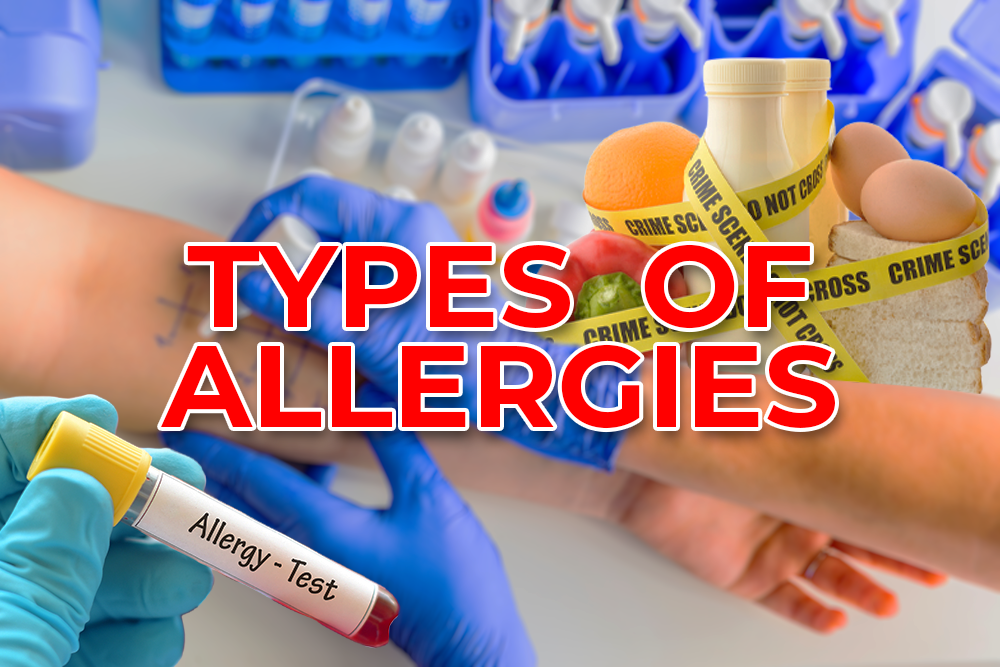Allergies can manifest in many ways, from seasonal sneezing to severe food reactions. Understanding the different types of allergies is the first step toward effective management and relief. The substances that cause these reactions, known as common allergens, are often harmless to most people but can provoke a significant immune response in others. Identifying your specific allergy triggers is crucial for preventing symptoms and improving your quality of life. This guide provides a clear overview of the primary allergy categories and their causes.
The expert medical team at Doral Health & Wellness provides comprehensive evaluations and personalized treatment plans for a wide range of conditions. Our distinguished specialists are committed to delivering the highest standard of care, ensuring you receive the guidance and support needed to manage your health with confidence.
The Major Types of Allergies and Their Triggers
An allergy occurs when your immune system overreacts to a foreign substance. This reaction is driven by an antibody called Immunoglobulin E (IgE), which signals cells to release histamine and other chemicals, causing allergy symptoms. Allergies are generally categorized by the type of allergen involved.
Environmental and Seasonal Allergies
Also known as allergic rhinitis or hay fever, this is one of the most common types of allergies. It is triggered by airborne substances that are often inhaled.
- Common Allergens – Pollen from trees, grasses, and weeds; dust mites; mold spores; and pet dander from cats, dogs, and other animals.
- Symptoms – Sneezing, runny or stuffy nose, itchy and watery eyes, and an itchy throat are characteristic symptoms. These can significantly impact sleep and daily functioning.
Food Allergies
A food allergy is an immune system reaction that occurs soon after eating a certain food. Even a tiny amount of the allergenic food can trigger signs and symptoms.
- Common Allergens – The eight most common food allergens are milk, eggs, peanuts, tree nuts (like walnuts and almonds), soy, wheat, fish, and shellfish.
- Symptoms – Reactions can range from mild hives and mouth tingling to severe, life-threatening anaphylaxis, which causes difficulty breathing and a sharp drop in blood pressure. An allergy doctor can help distinguish a true food allergy from a food intolerance.
Insect Sting Allergies
For most people, an insect sting means temporary pain and swelling. For someone with a sting allergy, the venom can trigger a much more serious reaction.
- Common Allergens – Venom from bees, wasps, hornets, yellow jackets, and fire ants.
- Symptoms – A severe reaction, or anaphylaxis, can occur rapidly, causing widespread hives, swelling of the throat and tongue, trouble breathing, and dizziness. People with known insect sting allergies must carry an epinephrine auto-injector.
Drug Allergies
This is an adverse reaction of the immune system to a medication. Any drug—prescription, over-the-counter, or herbal—can cause an allergy.
- Common Allergens – Penicillin and related antibiotics are the most common cause. Other culprits include sulfa drugs, chemotherapy drugs, and anesthetics.
- Symptoms – Reactions can range from a mild skin rash or hives to severe anaphylaxis.
Contact Dermatitis
This allergy type occurs when your skin touches a substance that causes a reaction.
- Common Allergens – Nickel (a metal found in jewelry and buckles), fragrances, latex, and the oils in poison ivy or poison oak.
- Symptoms – The primary symptom is a red, itchy, and bumpy rash that appears at the site of contact, usually within 24 to 48 hours.
How an Allergy Doctor Diagnoses Your Triggers
If you suspect you have an allergy, a professional diagnosis is essential for proper management. An allergist can perform specific tests to pinpoint your allergy triggers.
- Skin Prick Test – A tiny amount of a liquid allergen is applied to the skin, which is then lightly pricked. A positive reaction (a small, itchy bump) appears within minutes, confirming a sensitization.
- Blood Test (IgE Test) – This test measures the level of specific IgE antibodies in your blood to identify potential allergens, especially for patients who cannot undergo skin testing.
Managing and Treating Different Types of Allergies
Once your allergens are identified, your specialist will develop a comprehensive treatment plan.
- Avoidance – The primary strategy is to avoid contact with your known allergens.
- Medications – Antihistamines, nasal corticosteroids, and decongestants can effectively control symptoms of environmental and seasonal allergies.
- Epinephrine – For severe allergies like food or insect stings, an epinephrine auto-injector is prescribed for emergency use during anaphylaxis.
- Immunotherapy – Allergy shots or under-the-tongue tablets can desensitize your immune system to specific allergens over time, providing long-term relief. When searching for the best allergologist near me, inquire about their immunotherapy options.
If your symptoms are persistent, severe, or interfere with your daily activities, it is time to consult a specialist. An allergist doctor in NY can provide an accurate diagnosis and a personalized treatment plan for lasting relief.
Your Partner in Allergy Management
Navigating the various types of allergies can feel overwhelming, but clarity is the first step toward control. By identifying your specific allergy triggers—whether they are environmental, food-related, or something else—you and your doctor can create an effective management strategy. With the right combination of avoidance, medication, and possibly immunotherapy, you can significantly reduce the impact of allergies on your life.
The expert allergy and immunology team at Doral Health & Wellness provides personalized and comprehensive care. We utilize advanced diagnostics and develop tailored health strategies to ensure you receive the highest standard of treatment. To schedule a consultation, contact Doral Health & Wellness today at 1-718-365-2555 or visit us at 1797 Pitkin Avenue, Brooklyn, New York 11212. For general information about Doral Health & Wellness services, you can contact or email info@doralhw.org.






